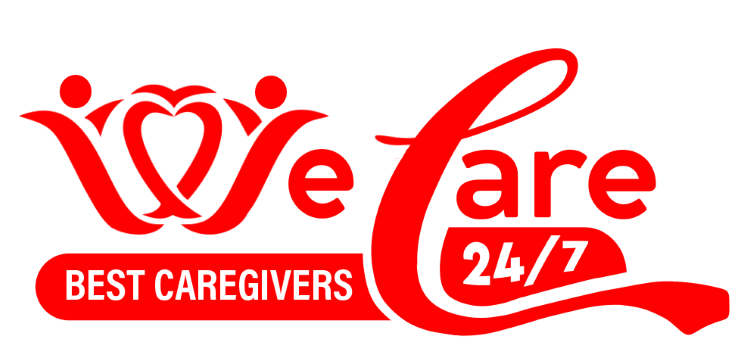How Much Does Home Care Cost in NJ? A Detailed Breakdown

Navigating Home Care Costs in New Jersey: A Comprehensive Guide
As our loved ones age or face new health challenges, ensuring their comfort, safety, and well-being at home often becomes a priority. For many families in New Jersey, home care emerges as a preferred solution, offering personalized support in a familiar environment. However, a common question arises: “How much does home care cost in NJ?” Understanding the financial aspects of in-home care is a significant step in planning for the future. This detailed breakdown by WeCare Home Caregivers aims to provide clarity on the various factors that influence home care expenses across the Garden State, helping New Jersey seniors, their adult children, and caregivers make informed decisions.
Key Factors Influencing Home Care Costs in New Jersey
The cost of home care is not a single, fixed number; it varies based on several elements. Recognizing these contributing factors can help you anticipate and budget for services that meet specific needs.
Type and Level of Care Required
The nature of assistance needed directly impacts the cost. Home care services range from light companionship to complex medical support. Understanding the distinctions is important:
- Companionship and Homemaking: This often includes services like meal preparation, light housekeeping, errands, medication reminders, and social interaction. These services generally come at a lower hourly rate.
- Personal Care: This involves hands-on assistance with activities of daily living (ADLs) such as bathing, dressing, grooming, toileting, and mobility support. Personal care typically commands a higher hourly rate due to the direct physical assistance involved.
- Skilled Nursing Care: Provided by a licensed nurse (RN or LPN), this includes medical tasks like wound care, medication administration via injections, catheter care, and monitoring vital signs. Skilled nursing care is the most expensive type of in-home service due to the specialized medical expertise required.
- Specialized Care: For individuals with specific conditions like dementia, Parkinson’s disease, or those recovering from a stroke, caregivers with specialized training may be necessary. This expertise can influence the cost.
Hours and Frequency of Care
Whether care is needed for a few hours a day, full-time, or live-in impacts pricing structures. Most agencies offer:
- Hourly Care: The most common model, where caregivers provide support for a set number of hours per day or week. Minimum hour requirements often apply.
- Overnight Care: For individuals who need supervision or assistance during sleeping hours. This can be “active” overnight (caregiver is awake and attending) or “sleep” overnight (caregiver sleeps but is available if needed).
- Live-In Care: A caregiver resides in the client’s home, providing continuous support. While offering constant presence, live-in care can be more cost-effective than 24/7 hourly care, as it eliminates multiple caregiver shifts and travel time.
Geographic Location Within New Jersey
Costs can fluctuate based on where you reside in New Jersey. Urban and more affluent areas often have higher labor costs, which can translate to increased home care rates. For instance, rates in Bergen County or Monmouth County might be marginally higher than those in more rural parts of South Jersey or the western counties. According to Genworth’s 2023 Cost of Care Survey, the median hourly rate for home care in the Trenton metropolitan area differs from that in the Vineland area, illustrating regional variances.
Agency vs. Independent Caregiver
While hiring an independent caregiver may seem less expensive initially, working with a reputable home care agency like WeCare Home Caregivers offers significant advantages that justify the cost:
- Screening and Vetting: Agencies conduct thorough background checks, reference verification, and often drug screenings.
- Training and Supervision: Caregivers receive ongoing training and professional supervision, ensuring quality care.
- Insurance and Bonding: Agencies carry liability insurance and bond their caregivers, protecting clients from financial responsibility in case of accidents or theft.
- Backup Care: If a primary caregiver is ill or on vacation, the agency provides a replacement, ensuring continuity of care.
- Payroll and Taxes: Agencies handle all employer responsibilities, including payroll, taxes, and workers’ compensation.
Average Home Care Costs in New Jersey
Understanding median costs provides a helpful benchmark. According to the Genworth Cost of Care Survey 2023, the median cost for homemaker services in New Jersey is approximately $28.00 per hour. For home health aide services (personal care), the median cost is around $29.00 per hour.
Based on these hourly rates, here’s an estimated breakdown for various care needs:
- Part-time Care (20 hours/week): Approximately $2,240 – $2,320 per month.
- Full-time Care (40 hours/week): Approximately $4,480 – $4,640 per month.
- Live-in Care: Can range from $10,000 to $15,000+ per month, depending on the level of care and specific agency pricing. This often represents significant savings compared to 24/7 hourly care.
It is important to remember these are median figures. Your actual costs will depend on the specific services chosen and your location within New Jersey. For comparison, the median cost of an assisted living facility in New Jersey is around $7,000 per month, while a private room in a nursing home averages over $12,000 per month. Home care often presents a more flexible and, in many cases, more economical solution that preserves independence.
What is Included in Home Care Costs?
When you receive a quote from an agency like WeCare Home Caregivers, the hourly rate covers more than just the caregiver’s time. It encompasses a range of operational expenses and benefits that ensure reliable, professional service:
- Caregiver Compensation: The caregiver’s wages, benefits, and payroll taxes.
- Recruitment and Training: Costs associated with finding, screening, and continuously training qualified caregivers.
- Insurance and Bonding: Liability insurance, workers’ compensation, and bonding to protect both the client and the agency.
- Supervision and Case Management: Professional oversight of care plans, regular check-ins, and coordination of services.
- Administrative Overhead: Costs for scheduling, billing, and ensuring compliance with state regulations.
- 24/7 Support: Many agencies offer round-the-clock administrative support for emergencies or scheduling changes.
When comparing prices, ensure you understand what each quote includes. A lower hourly rate from an unregulated source might mean hidden risks or responsibilities for the family.
Payment Options and Financial Assistance for Home Care in NJ
Understanding how to pay for home care is a primary concern for many families. Fortunately, several avenues exist beyond personal savings.
1. Private Pay
This is the most common method, utilizing personal funds from savings, pensions, investments, or reverse mortgages. Many families combine private pay with other funding sources.
2. Long-Term Care Insurance
If your loved one has a long-term care insurance policy, it may cover a significant portion of home care costs. These policies typically activate when an individual requires assistance with two or more ADLs or has a cognitive impairment. Review the policy details for daily benefit amounts and elimination periods.
3. Medicaid (New Jersey – NJ FamilyCare)
New Jersey’s Medicaid program, NJ FamilyCare, offers support for low-income individuals who meet specific financial and medical criteria. The Managed Long-Term Services and Supports (MLTSS) program within NJ FamilyCare can provide comprehensive home and community-based services, including personal care, skilled nursing, and respite care. Eligibility requirements are strict, based on income and assets, and a medical needs assessment is required to demonstrate the necessity of long-term care services.
For more information, you can visit the NJ Division of Medical Assistance and Health Services (DMAHS) website on MLTSS.
4. Veterans’ Benefits
Veterans and their surviving spouses may be eligible for the VA’s Aid & Attendance pension. This benefit provides additional monthly income to help cover the costs of in-home care for those who meet specific service and medical requirements, and who need assistance with daily living activities. Consult with a Veterans Affairs (VA) representative or an elder law attorney specializing in VA benefits.
Learn more about Aid & Attendance on the VA website.
5. State-Specific Programs (Beyond Medicaid)
New Jersey offers programs designed to assist seniors, though direct home care coverage may be part of broader initiatives:
- PAAD (Pharmaceutical Assistance to the Aged and Disabled): While primarily for prescription drugs, understanding all state programs can help manage overall senior expenses.
- Senior Gold Prescription Discount Program: Another prescription assistance program.
- It is always advisable to contact your County Office on Aging for local programs and resources that may offer financial assistance or subsidies for certain home care services or related needs.
Making Home Care More Affordable
Even with various payment options, managing costs requires careful planning. Consider these strategies:
- Accurate Needs Assessment: Work with the agency to precisely determine the hours and type of care truly needed. Avoid over-scheduling, especially at the start.
- Leverage Family Support: Combine professional home care with assistance from family members for tasks that don’t require specialized training or extensive time. This “hybrid” model can reduce paid hours.
- Explore Package Deals: Some agencies offer discounted rates for purchasing larger blocks of hours or for specific long-term contracts.
- Understand Tax Deductions: In some cases, medical expenses, including home care costs, may be tax-deductible if they exceed a certain percentage of your adjusted gross income. Consult a tax advisor.
Choosing WeCare Home Caregivers: Your Trusted Partner in NJ
When considering home care for yourself or a loved one in New Jersey, the financial aspect is undoubtedly important. However, the value of compassionate, professional, and reliable care is immeasurable. At WeCare Home Caregivers, we understand the nuances of providing exceptional in-home support. We are committed to transparency regarding our pricing and working with families to develop a care plan that balances needs with budget.
Our team of highly trained, screened, and compassionate caregivers is dedicated to enhancing the quality of life for seniors and individuals with disabilities across New Jersey. We adhere to the highest standards of care, ensuring peace of mind for families.
We invite you to reach out to us for a personalized consultation. During this discussion, we can conduct a detailed assessment of care needs, explain our specific rates, and explore potential payment options tailored to your situation. Understanding the cost of home care in NJ is the first step; finding a partner you can trust to deliver outstanding care is the next.
Contact WeCare Home Caregivers today to begin a conversation about how we can support your family’s home care journey in New Jersey.



